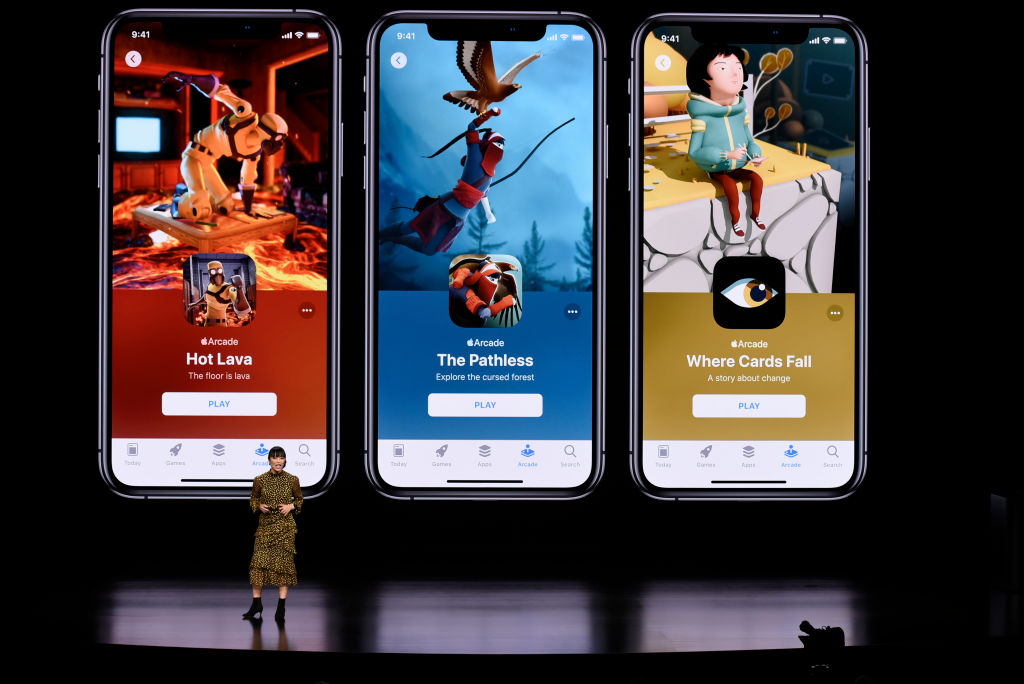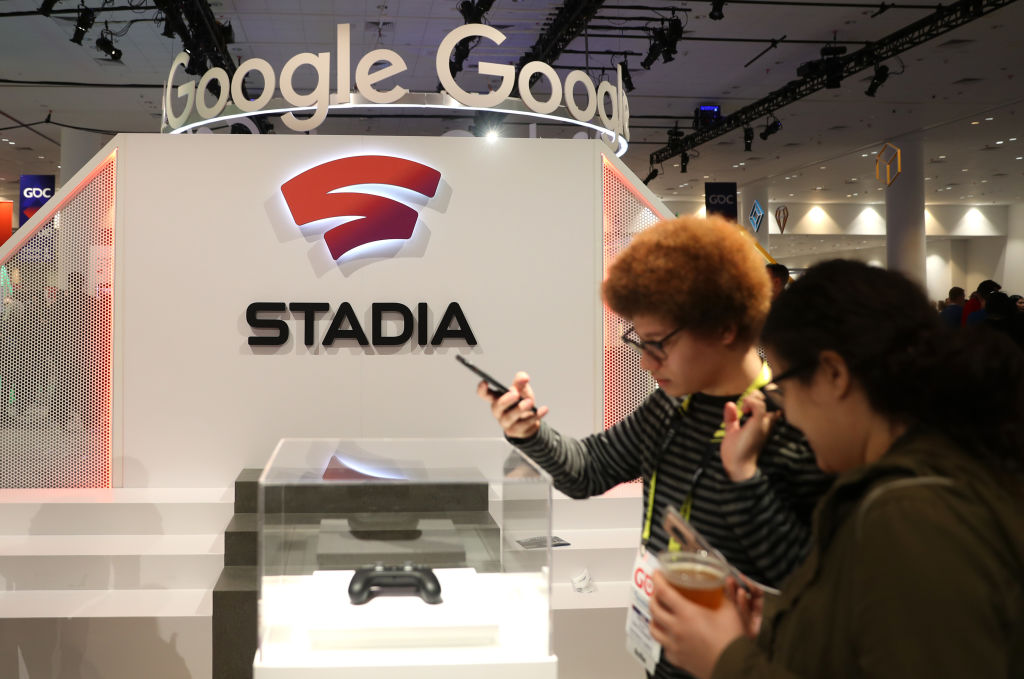
Source: Michael Short / Getty
Video games over the past couple of decades have gone from novel pastime to essentially the dominant art medium. Just last year alone, Rockstar Games’ epic open-world Western Red Dead Redemption 2 had a better weekend gross than both Black Panther and Avengers: Infinity War making over $725 million in the first three days. As ideas of what makes an individual a “gamer” changes with new emerging demographics, technological advancements in accessibility have evolved too. Through the era of streaming, film, television, literature and music became the equalizer in obtain content. Cloud Gaming (or Video Game Streaming) is ramping up to finally go mainstream through the recent announcements of Google Stadia and Apple Arcade—following several attempts. News comes after Microsoft also announced their Azura streaming platform last May promising nearly the same features as Stadia.
Cloud Gaming means hardware limitations inherited by gaming console lifespans, which, normally range between four to seven years alongside ultra expensive PC gaming setups is slowly seeing an logical alternative. It makes sense when your newest video game console from Sony, Microsoft and Nintendo use internal components similar to mid-low end tier gaming PCs than single-purpose proprietary hardware. That’s because PC gaming has historically set the biggest trends that eventually trickle down to consoles including virtual reality, digital storefronts, online play, “free-to-play” and resolution benchmarks. Call it gaming’s equivalent to the “one percent.” It doesn’t help that many PC gamers, who represent around 35 percent of all gamers, refer to themselves as the Master Race.
Don’t believe it? Just ask Terry Crews. Playing graphically intensive games like Metro Exodus or Battlefield V on higher end Playstation 4 Pro or Xbox One X seem cheap once you start playing on rigs as expensive as this.
It’s one of the reasons popular free-to-play games like Fortnite can be played on literally anything including iPhones, Android phones, tablets, consoles, desktops, and laptops. The only real difference is visual fidelity that improves depending on the hardware and controller input type as architecture homogenization makes ports easier. Offloading the graphical load that would require thousands of dollars of equipment somewhere else for someone with basically any device with a screen closes the gap between consumer and hyper enthusiast. That’s why Google caused a lot of noise when it invited a selected few to preview their service last year with notable triple AAA title Assassin’s Creed Odyssey being playable through the Chrome browser. Nintendo has already started experimenting with Cloud Gaming in Japan with streamable versions of both Assassin’s Creed Odyssey and Resident Evil 7: Biohazard for its usually underpowered Switch.

Source: Justin Sullivan / Getty
When Google made the announcement last week, it purposely demonstrated the platform with Id Software’s upcoming Doom Eternal. Those familiar with Doom understand the significance of the series as the game that popularized the first-person-shooter genre during the early 90s and set new graphical benchmarks with each release. Google was wise to also mention their hardware rigs were more powerful than PS4 Pro and XBOX One X.
The biggest hurdle Stadia has are possible latency issues due to its dependency on fast enough internet connection. Music and video streaming services can buffer and continue while gaming is always a real-time activity. Right now, Google recommends “approximately 25 Mbps” to play a game at standard high-definition with at least 60 frames per second. Internet speeds will have to be even higher to play games at 4K with the same frame rate. Helping with latency is the Google Stadia controller through a wifi connection tied directly to the server instead of through a device itself. Like many other lesser known cloud gaming services like Vortex and Shadow, Stadia will compensate slow internet speeds by lowering the resolution like Netflix.
Apple Arcade takes a vastly different approach in order to more capitalize on the mobile gaming sphere they helped popularize through the original iPhone. So while Apple Arcade won’t get the latest blockbuster gaming titles like Call of Duty or NBA 2K, it’ll rely on artsy indie games and older generation ports alongside some possibly significant exclusives. Think of it as Apple’s take on Microsoft’s Netflix like Xbox Game-Pass service, which, charges a monthly fee for a select amount of games to download various titles for the duration of the subscription.
Since Apple Arcade games will exist across Apple TV, iOS and OSX platforms, play sessions will probably be transferable between devices. Despite attempts at entering the gaming space, Apple hasn’t had much influence in the space since the days of the Apple II. Apple Arcade is a clever way to enter the space on their own terms as most loyal Apple users will admit modern desktop or laptop hardware from the iTunes provider leaves a lot to be desired gaming wise. So much to where it doesn’t even have real virtual reality support similar to the Oculus Rift.
Though both Google and Apple are taking significantly different approaches to Cloud Gaming, exclusives are still the key. No different than current battle between Netflix and Hulu, this will be the key factor in whether or not either truly take off. Google picked up former Assassin’s Creed series producer Jade Raymond to lead their studio while Apple is partnering with legends including Final Fantasy creator Hironobu Sakaguchi and The Sims creator Will Wright.
Traditional gaming will always be around just as much as Blu-Ray disc, vinyls and MP3s still exists past their initial usage. However, financial barriers preventing many from enjoying these experiences are starting to come down with streaming serving as the equalizer.
- Sudan: Entertainment, Food, Languages, Places To Visit + More
- Egypt: Entertainment, Food, Languages, Places To Visit + More
- Algeria: Entertainment, Food, Languages, Places To Visit + More
- Morocco: Entertainment, Food, Languages, Places To Visit + More
- Tunisia: Entertainment, Food, Languages, Places To Visit + More
How Apple & Google Are Helping Shape The Future Of Gaming was originally published on cassiuslife.com















